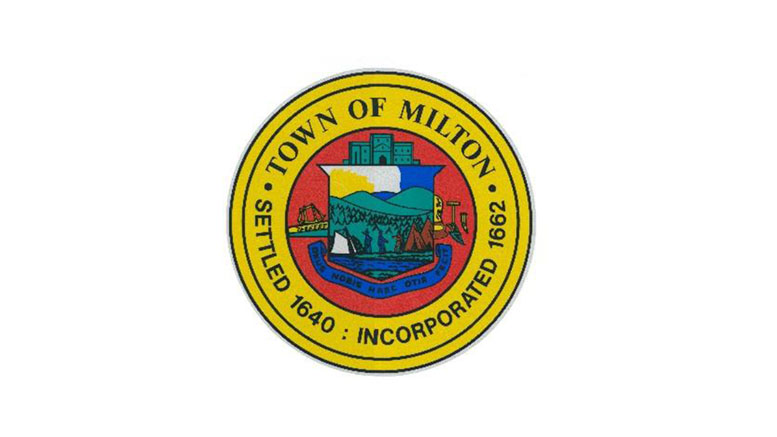Equity and Justice for All Advisory Committee finds Milton lacking in formal commitment to DEI
The Select Board, recognizing Milton’s need for increased attention to diversity, equity and
inclusion (“DEI”) in its civic life, established an Advisory Committee to the Select Board on Equity and Justice for All.
The Committee’s charge was “to review Town policies, procedures, and budgets for the purpose of advancing equity and justice for all.”
The Committee released its report, which you can view by clicking here.
Key findings of the Committee were as follows:
The Committee’s central and consistent observation, apparent almost immediately after it began its work and noticeable through interviews and document reviews, is lack of any formal commitment to DEI within Milton.
In this respect, Milton as a Town is out of step with best practices in a host of institutions, whether public or private. In the Committee’s experience, individual organizations—whether governmental entities, non-profit organizations, or private companies—formalize their commitments to DEI through public-facing statements coupled with actionable policies. This gap was doubly glaring given Milton’s racial and ethnic diversity.
While the Committee recognizes that a papered policy or statement is hollow without actions and accountability, the formation of a statement and policy is a minimum, and easy-to-achieve, starting point from which further action can be based. The lack of any such formal statement or policy in Milton reflected an obvious gap that could be quickly remedied to form a basis for further action.
Consistent with, flowing from, and reinforcing the lack of a formal commitment to DEI is a lack of diversity within Town institutions themselves. Whether through departmental staffing within the Town (including the police and fire departments), Town committees (whether appointed by the Select Board or the Moderator), or elected officials, those serving the Town and representing its institutions, in the aggregate, do not reflect the diversity of the Town itself.
The Committee recognizes that there are structural barriers that may be difficult to overcome―such as the limitations of the Massachusetts Civil Service law placing limits on the freedom of the police and fire departments to hire with diversity in mind―but notes that the lack of diversity creates a negative feedback loop: when people of color in the Town do not see themselves represented in the Town’s institutions, it diminishes a feeling of inclusion and belonging, and disincentivizes greater involvement.
The Committee further observed that historical patterns and inertia create obstacles to Milton’s progress on DEI. A key and critically important example is affordable housing, where Milton has fallen far behind its statute-mandated requirement to provide a minimum amount of affordable housing, and where significant forces in the Town have and continue to create barriers to creating more affordable housing. Failure to provide for affordable housing carries elements of race discrimination, and disproportionately affects residents of color.
Milton’s schools, during the Committee’s tenure, have been in the process of attempting to overcome some of these same historical patterns and inertial and structural obstacles. The Committee observes that, in the schools and despite these efforts, there is still much work to be done on a number of fronts. Despite, for example, having a strategic plan around DEI, Milton’s schools continue to struggle with diversifying their teachers and staff. And while the schools have created a position with responsibility over DEI, significant questions remain whether that position has been or will in the future be given sufficient power and support to be effective.
Outside of the centralized systematic issues around diversity and equity in the schools, the Committee focused on the more decentralized problem of youth sports, where programs are created without DEI in mind, detrimentally affecting families and children of color disproportionately.
Finally, while not an area of study, it is important to note that the Committee itself as a body, and members individually, observed or directly experienced expressions of bias and discrimination. For example, the Committee was aware of letters published in the Milton Times where residents took aim at this Committee and its work, or public comments regarding DEI by its members, calling such work or comments divisive and unnecessary.
While the Committee appreciates that individuals may have differing political views that they are and should be free to express, resident comments regarding this Committee’s work was at times overtly hostile, leading to concerns regarding the amount of resistance that the Town may need to overcome in realizing significant progress regarding DEI.
Key Recommendations:
While each area of focus elicited its own unique set of recommendations, four key recommendations emerged, which the Select Board, as of this writing, is already in the process of implementing.
The first is the creation of a Town-wide DEI statement and policy. That policy would provide guidance and requirements regarding greater diversity in hiring and committee appointments; require that government entities throughout the Town (including appointed and elected committees) make their commitment to DEI clear through public-facing statements; create guidelines around procurement; and provide for a formal DEI complaints policy. In concert with the Select Board’s Policy Committee, the Committee drafted such a policy, which at the time of this writing is still being considered by the Select Board.
The second is the creation of a standing DEI Committee, appointed by and accountable to the Select Board, with responsibility over DEI issues. While the Committee also recommends that Milton create a permanent Town-wide DEI position, a permanent Committee made up of volunteer residents can be a crucial sounding board and provide a needed forum for the Town to continue this ad hoc Committee’s work far into the future.
Consistent with these actions, the Committee worked closely with the Town Administrator to select and hire a DEI consultant, who as of this writing has already begun work auditing the Town’s DEI practices to provide an assessment and recommendation for best practices.
The third is the need for education and dialogues around affordable housing. Much of the aversion among some Town residents regarding affordable housing appears to come from a lack of understanding about what affordable housing is and how Massachusetts General Law Chapter 40B imposes specific compliance requirements on the Town. This lack of understanding may lead to reticence from the Planning Board to proactively craft a plan for such compliance (presumably in concert with the Town Planner), and the Committee strongly recommends that the Select Board, to the extent possible, guide and work with the Planning Board on such efforts.
Finally, consistent with the need for a Town-wide DEI staff member, such an individual should have in its purview oversight regarding 40B compliance. While the Town is in the process of creating a Shared Housing Services Office with a group of municipalities to maintain compliance, there should be structures of reporting and accountability so that the work of creating affordable housing continues equitably and without delay.
The fourth is a much-needed focus on youth sports, which is critically important to children and families in Milton. The decentralized, volunteer nature of youth sports leads to situations where there is inconsistent communication—and inconsistent resources—around available programs. This inconsistency can be remedied by providing for consistent and regularized communication regarding sign-up dates and transportation, which can also be made more broadly available to more families.
Making even relatively simple changes in this regard, as the Board of Park Commissioners has been doing, can potentially lead to significantly improved opportunities for Milton’s youth.
Committee members:
- Linda Champion (alternate)
- Mark Conrad
- Frank Davis
- Karen Groce Horan
- Aldo Guerrero
- Christopher Hart
- Patricia Latimore
- Janel Lucas
- Keith McDermott
- Quincy Miller (alternate)
- Lamar Reddicks
- Renisha Silva
- Reverend Lisa Ward







Be the first to comment on "Equity and Justice for All Advisory Committee finds Milton lacking in formal commitment to DEI"